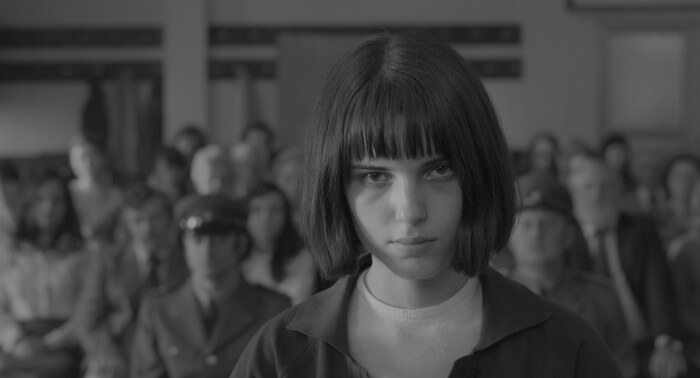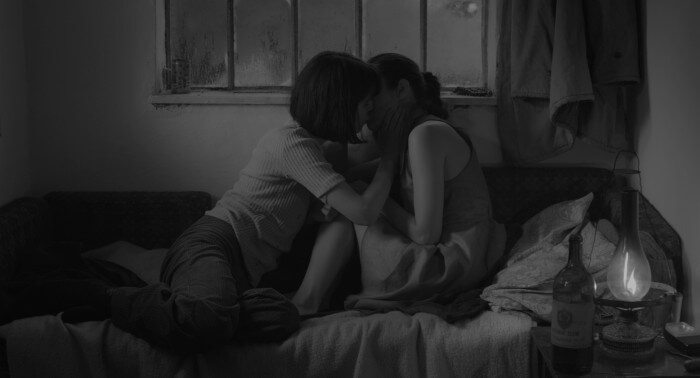Berlin Film Review: ‘I, Olga Hepnarova’
[dropcap]I[/dropcap] love it when a film has a narrative structure such as this; starting in a generic way before coming to some startling conclusions, uncovering layer after layer in such a way to obliterate all expectations. Of course, I Olga Hepnarova wasn’t going to end in any other way – it was fated from the beginning – yet the true joy of the narrative is just seeing how it all really turns out. This makes the strongest cases never to read a plot synopsis before watching a film, because when it does finish, it only becomes more brilliant as a result.
It starts as one of your generic, lesbian coming-of-age films. Olga (Michalina Olszanska) is shunned by her family, before ditching them to live on her own. Then she meets another women at work and realises her true sexuality. She seems to say many amoral things – when she talks to her mother and her psychiatrist, but I, the second-guessing critic, merely put it down to teenage angst.
When she is first at her psychiatric hospital for children she doesn’t smoke, but by the end she is constantly found with a cigarette in her mouth. At first, with her perfect fringe and determined yet chic expression, she looks extremely cool when she smokes. By the end – when she smokes every cigarette like its the last one on earth, not even bothering to ash – we see her addiction is more pathological than based upon any enjoyment.
The same can be said for her sexual appetite, easily picking up and enjoying sex with other girls, but being unable to form any long lasting connections with them. So she’s a bit of a sociopath, possibly a psychopath, but from the first half of the movie its not unreasonable to expect some kind of fulfilling ending. Yet I went in blind – if you bother to look up her name (as this is based on a true story) you will find the startling ending right there for you. I suggest you wait to do the fact-checking until after you see this film.
Very rarely do I see a movie that starts feeling like a young adult novel and ends with shades of Dostoyevsky.
It is filmed in black-and-white with mostly static camera movement. This use of monochrome and fixed camerawork works to this film’s advantage, creating an austere environment in which Olga cannot escape. When the mostly-still camera does decide to move – such in the films climactic scene, its rare break from form does wonders to stress the episodes shocking nature.
Embedded and expressed through this Bressonian form is a critique of communist culture (it is set in 70s Czechoslovakia) and social institutions at large, giving larger ramifications to the story than just another rote teenage girl drama.
Very rarely do I see a movie that starts feeling like a young adult novel and ends with shades of Dostoyevsky. It is testament to the directors confidence, and to the acting talents of Michalina Olszanska that they have so smoothly guided such a film from beginning to its grisly, seemingly predetermined end.
Directors: Tomas Weinreb and Petr Kazda.
Cast: Michalina Olszanska, Martin Pechlat, Klara Meliskova, Marika Soposka, Juraj Nvota, Marta Mazurek, Zuzana Stavna
Running Time: 105 minutes
Country: Czech Republic


Comments